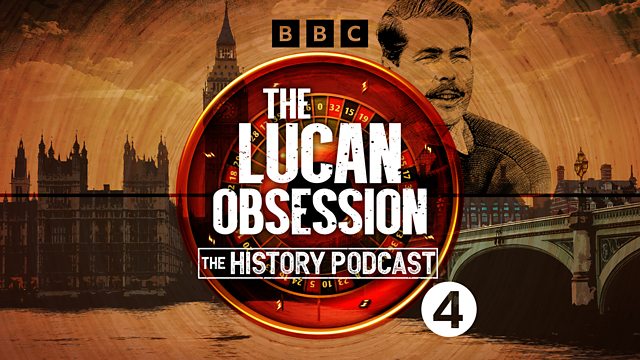The Lucan Obsession : 1. The Double Mystery
The case of Lord Lucan is legendary. Why does this, of all horrific murders from the last century, still resonate today?
One winter's night, 50 years ago, a crime took place that obsessed the nation.
Lord Lucan is said to have killed the family nanny, attacked his wife and vanished.
Newspapers ran wild with lurid detail and it became a story hardwired into British culture.
Why did this case capture the British imagination, and spark one of the greatest unsolved mysteries of the 20th Century?
Historian Alex von Tunzelmann unpacks the story of our obsession, taking us into a dizzying world of high stakes gambling and exclusive London clubs, powerboat racing and pet tigers. It’s also a dark realm of bankruptcy, gaslighting and stalking, and at its heart, a story with a violent and very tragic death.
Across the series she investigates the two mysteries at the centre of this story: was Lord Lucan the murder, and where on earth did he go?
Told and retold, the facts of the Lucan story have got lost. Alex finds herself in a hall of mirrors where truth and lies distort themselves into new myths and new mysteries. Was the truth obscured by booze and backhanders, class deference and journalist spin?
As she tries to get to the bottom of this case, she meets eyewitnesses from the '70s, people caught up in the crime, and those who just can’t let it go. She unearths long forgotten tapes and letters, piecing together fragments of a legend to discover why the Lucan myth still holds such power.
Series contributors:
Algy Cluff, Pierrette Goletto and Mandy Parks
Journalists: Bob Strange and James Fox
Author: Laura Thompson
Crime writer: Claire McGowan
Police: Geoff Lewry, Richard Swarbrick and Jackie Malton
UK Missing Persons Unit: Louise Newell
Presenter: Alex von Tunzelmann
Series Producer: Sarah Bowen
Content Producer: Becca Bryers
Last on
More episodes
Previous
You are at the first episode
Broadcast
- Last Monday 13:45Βι¶ΉΤΌΕΔ Radio 4
Featured in...
Podcast
-
![]()
The History Podcast
History in close-up, through the people who were there.



